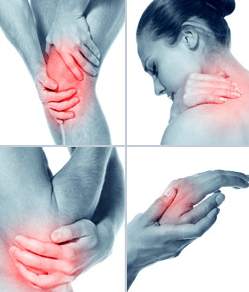Herpes
Definition:
The herpes simplex virus, also known as HSV, is an infection that causes herpes. Herpes can appear in various parts of the body, most commonly on the genitals or mouth. There are two types of the herpes simplex virus. HSV-1, also known as oral herpes, can cause cold sores and fever blisters around the mouth and on the face. HSV-2 is generally responsible for genital herpes outbreaks.
Signs & Symptoms:
It is important to understand that although someone may not have visible sores or symptoms, they may still be infected by the virus and may transmit the virus to others. Some of the symptoms associated with this virus include:
blistering sores (in the mouth or on the genitals)
pain during urination (genital herpes)
itching
Additionally, you may experience many symptoms that are similar to the flu. These symptoms can include fever, swollen lymph nodes, headaches, tiredness, and lack of appetite. HSV can also spread to the eyes, causing a condition called herpes keratitis. This can cause symptoms such as eye pain, discharge, and a gritty feeling in the eye.
Cause:
The herpes simplex virus is a contagious virus that can be passed from person to person through direct contact. Children will often contract HSV-1 from early contact with an infected adult. They then carry the virus with them for the rest of their life.
How To Cure:
- Ice Packs
Ice helps relieve the pain and discomfort caused by herpes outbreaks.
Wrap an ice cube in a cloth or towel.
Place it on the affected area for about 10 minutes.
Do this several times a day for a few days until you see improvement.
- Hydrogen Peroxide
Being a disinfectant, hydrogen peroxide is a quite popular home remedy for herpes.
Apply a little 3% hydrogen peroxide solution on the affected area using a cotton ball. Leave it on for a few minutes, and then wash it off. Repeat the process every few hours for a couple of days.
You can also crush a lysine tablet, mix it with hydrogen peroxide, and then apply.
For oral sores, use a mixture of one part hydrogen peroxide and three parts water as a mouthwash a few times daily for two or three days.
. Garlic
Garlic has natural antimicrobial and anti-inflammatory properties that help combat herpes outbreaks. Research published in Planta Medica in 1992 found that a chemical called allicin present in garlic may have antiviral effects. Garlic oil also contains the antiviral compound ajoene.
Place a crushed garlic clove on the affected area and leave it on for 10 to 15 minutes. Do this a few times daily for two days or until you see improvement. Be aware, it may cause a burning sensation.
Alternatively, you can apply garlic oil on the affected area two or three times daily. To make garlic oil, cook fresh garlic cloves in olive oil until they turn brown and then strain the oil.
You can also eat one or two crushed garlic cloves daily. This will also work as a preventive measure.

